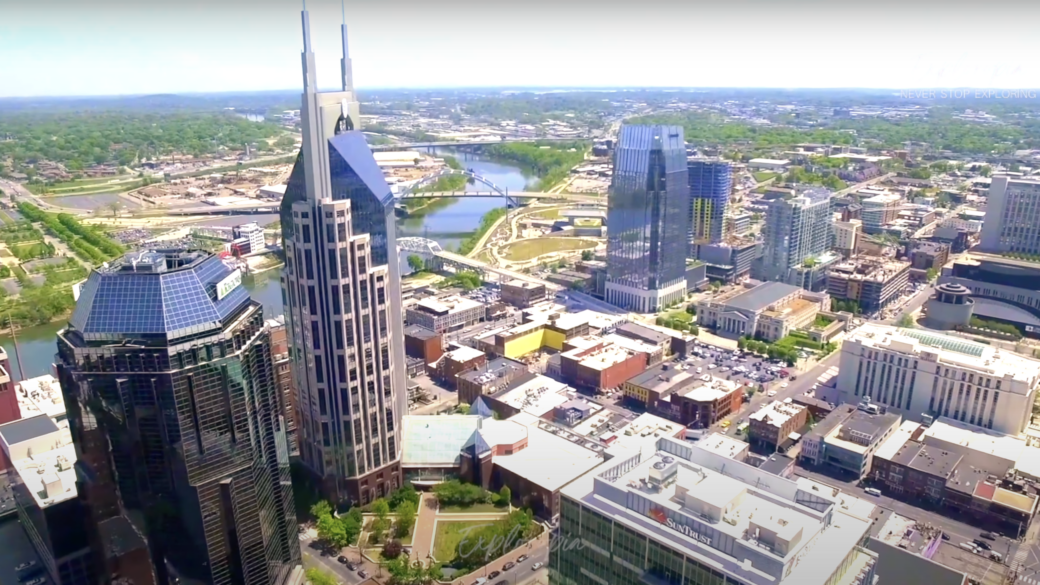Reasons Why Nashville is so Dangerous
In Nashville, the iconic capital of Tennessee, its rich history and influence on American music culture are evident. However, like any city, Nashville has its challenges hidden beneath its lively exterior. This in-depth examination delves into the 12 reasons why Nashville is so dangerous. It discusses the factors that contribute to the city’s reputation for safety concerns, providing a closer look at the complexities behind its vibrant facade.
12. Inadequate Public Transportation
Nashville’s public transportation is inadequate. The city’s infrastructure is overburdened by population growth, forcing people to use cars and ride-shares. This car dependence causes traffic congestion and accidents. For example, in 2019, Nashville witnessed more than 33,000 accidents, a concerning statistic when compared to cities of similar size.
Furthermore, the inadequacy of public transportation has environmental repercussions, leading to pollution and other urban challenges that indirectly affect the safety and quality of life of Nashville’s residents.
11. Burgeoning Homelessness
The homeless population in Nashville is growing due to economic inequality and a lack of affordable housing. The streets show the harsh realities of a growing homeless population despite some city efforts. The desperation stemming from homelessness often intersects with criminal activities.
In specific neighborhoods, there is a noticeable connection between increasing homelessness and a rise in petty crimes. This situation contributes to an unsafe environment, impacting not only the homeless individuals but also the safety of residents in those areas.
10. Rising Cost of Living
In Nashville, living costs are rising. In recent years, the city’s housing costs and cost of living have increased. Many residents struggle financially as essential goods and housing costs rise. To cope with financial pressure, people often turn to crime, which increases property crimes. Also, these increased costs are driving middle-class residents out of the city, worsening socioeconomic inequality. Disparities can increase crime and social unrest, making the city unsafe for residents and visitors.
9. Drug and Substance Abuse
The shadow of drug and substance abuse casts a significant and troubling presence over Nashville, akin to many urban areas throughout the country. While the city’s vibrant nightlife and music scene attract residents and visitors, they also foster substance abuse and its dangers. Nashville has seen a rise in drug crimes and trafficking. In particular, the opioid crisis has entangled the city in social and criminal issues.
One of the far-reaching consequences of this crisis is a surge in both minor and violent crimes, as individuals trapped in addiction often turn to desperate measures to sustain their habits. Law enforcement authorities find themselves in an ongoing battle with the wide-ranging repercussions of drug abuse, directly impacting the city’s overall safety and security.
8. Insufficient Law Enforcement Resources
Nashville’s rapid expansion has had its drawbacks, notably straining the city’s law enforcement resources. The police force grapples with the challenge of keeping up with the growing population and the subsequent uptick in criminal incidents. Some neighborhoods have reported longer response times and a perceived shortage of patrol units.
The disparity between the demand for law enforcement services and the available resources is a significant concern, creating an environment where criminals feel emboldened and fostering a sense of insecurity among the populace. Although there are ongoing initiatives to bolster the police force and enhance its effectiveness, the path to a safer Nashville necessitates a collaborative effort from all parties involved.
7. Gang Activity
Gang-related issues mar the urban landscape of Nashville, adding a layer of complexity to the city’s safety concerns. Gang-related violence and criminal activities form a grim reality that casts a persistent shadow over the city’s security profile. The gang culture perpetuates a cycle of violence, territorial disputes, and illicit enterprises that are challenging to dismantle.
Communities affected by gang violence experience notably higher rates of violent crimes, resulting in areas that residents often avoid, in stark contrast to the vibrant heart of the city. The entrenched presence of gangs not only deters residents but also diminishes Nashville’s appeal to potential investors and visitors, intensifying the city’s battle against the tide of violence and crime.
6. High Traffic Accident Rates
Nashville’s vibrant streets also harbor a significant danger – a high rate of traffic accidents. Traffic accidents rise as the city’s population grows and streets become congested. One alarming statistic is the number of fatal accidents per capita, which places Nashville in the spotlight for traffic safety analysts. Road safety is also a concern in Missouri.
These accidents aren’t solely attributed to increased vehicular traffic but also reflect the inadequacy of the infrastructure to accommodate the growing demands. Consequently, every journey on the road in Nashville carries an inherent risk, making traffic safety a prominent concern.
5. Lax Gun Control Laws
Tennessee’s lax gun control laws contribute to Nashville’s rising violent crime rate. To reduce violence, law enforcement and community leaders have focused on firearm accessibility. This leniency in gun laws is reflected in the increasing number of gun-related incidents within the city.
Tragic stories emerge from domestic disputes that turn deadly, road rage incidents leading to fatal outcomes, and impulsive decisions resulting in tragic consequences, all of which are becoming distressingly common in daily news reports. The reality is that the widespread availability of firearms amplifies the potential for violence, rendering Nashville a perilous landscape.
4. Economic Disparities
Significant disparities in Nashville’s economic environment are causing a growing gap between various socioeconomic groups. This imbalance contributes to a range of social problems, including crime.
A large portion of the population living in poverty or near-poverty often turns to crime. Economic disparities can also cause social unrest, which breeds violence and crime. The neighborhoods most affected by economic hardship often experience higher crime rates, painting a bleak picture of the city’s safety situation.
3. Inadequate Mental Health Resources
Mental health, often an invisible thread in the fabric of societal well-being, poses a significant challenge in Nashville. But the city lacks mental health resources, leaving many without help. This lack of support can cause homelessness, substance abuse, and violence. This scarcity of mental health resources puts not only affected individuals at risk but also threatens community safety. The long-term effects of untreated mental health issues make public safety a major issue in Nashville, complicating efforts to fight crime and protect residents.
2. High Crime Rates
The concerning crime rates in Nashville highlight the city’s less favorable aspects. With a crime rate exceeding the national average, ensuring the safety of residents and visitors is a pressing concern. The spectrum of criminal activities encompasses minor thefts to more severe offences, each leaving a trail of victims. The harsh reality is that the increasing prevalence of crime negatively impacts Nashville’s reputation, making safety a paramount issue.
Neighborhoods with higher crime rates often find themselves caught in a cycle of decreasing property values, limited economic opportunities, and a noticeable sense of fear among residents. Addressing this situation necessitates a comprehensive approach to preventing crime and actively engaging the community to reshape Nashville’s safety narrative.
1. Violent Crime – Biggest Reason why Nashville is so Dangerous
Nashville’s violent crime is a major issue. The city has more homicides, assaults, and robberies than most American cities. The severity of this issue makes certain areas of Nashville appear violent, casting a shadow over the city’s reputation. The origins of violent crime often intertwine with the aforementioned issues, forming a complex, multifaceted challenge that necessitates a comprehensive, well-rounded approach to address.
The elevated occurrence of violent crime not only jeopardizes lives but also significantly impacts the overall quality of life and the general atmosphere within the city.
Conclusion
Nashville, with its rich cultural heritage and musical heartbeat, is a city of contradictions. While the charm of its musical legacy and southern hospitality continues to attract individuals, the undercurrents of risk that flow through its streets cannot be disregarded. From economic inequality to violent crime, the issues are sobering and require immediate attention.
Confronting these problems demands a joint effort from the community, law enforcement, and policymakers alike. There is hope that highlighting these somber aspects can change the narrative and make Nashville safer and more harmonious. Nashville’s journey toward safety requires facing harsh realities and working hard to build security and unity.
For reasons why Ocala is a dangerous place, click here.


